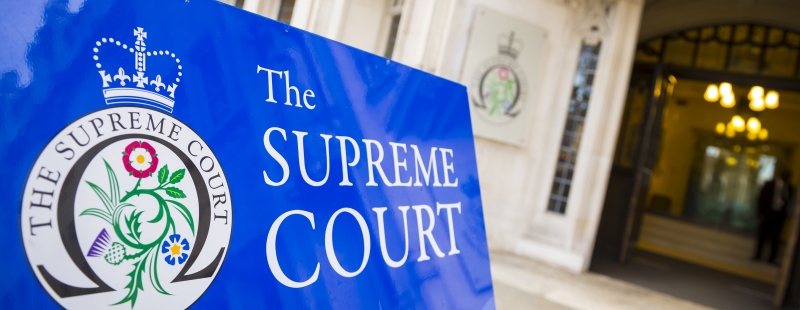Today, the highest Court in the country allowed the appeal of a heterosexual couple, Rebecca Steinfeld and Charles Keiden, who have been fighting for the right to have a civil partnership.
Rebecca and Charles, two academics from Hammersmith London, are currently unable to form a civil partnership under the Civil Partnership Act 2004 as it only applies to same sex couples – something which they have long campaigned to change.
The Court had to decide whether this bar breaches their rights under article 14 (the prohibition on discrimination) along with article 8 (the right to respect for private life) of the European Convention on Human Rights (ECHR).
The High Court and Court of Appeal had previously dismissed their claim on the basis that the interference with the rights was justified as the Government needed time to debate proposed reforms which included extending civil partnerships to heterosexuals or abolishing them altogether.
However, today, the Supreme Court unanimously decided that the 2004 Act was “incompatible” with human rights law. Although a welcome decision, Rebecca and Charles will not be able to form a civil partnership until the law is changed. However, it is hoped that this decision will prompt the Government to reconsider the current legislation and spark a change in the law.
How did we get to this point?
In 2014, the Government enacted the Marriage (Same Sex Couples Act) 2014 which allowed same- sex couples to marry. The Act also allows civil partners to convert their partnership into a marriage. This was a landmark piece of legislation which changed the face of family law and also society generally.
This presented the Government with an ideal opportunity to review the existing law on civil partnerships and to decide on their future. Many argued that the introduction of the 2014 Act effectively made civil partnerships redundant and that they should be abolished.
However, the Government decided that no action would be taken. They did not want to abolish civil partnerships or extend them to heterosexual couples. It was acknowledged that this would create an inequality but it was felt that a final decision could not be made until they had a clear idea of social attitudes after the introduction of same-sex marriages.
Four years later, we are not much further forward. Government consultations have failed to reach a consensus on how, and indeed if, civil partnerships should be extended or abolished.
Why is this ruling important?
The ruling is important because it highlights the deficiencies of the current legislation and highlights the need for reform.
Although the Court have declared the current law under the 2004 Act as incompatible with article 14 and article 8 Rebecca and Charles are still unable to form a civil partnership. They will only be able to do this if the Government extends the 2004 act to heterosexual couples.
This would remove the inherent inequality between same-sex and different-sex couples and could provide couples with an alternative route to marriage which for some, conflicts with their ideological beliefs.
The question then is how far do we go? There are a number of financial benefits in entering into a civil partnership or marriage which many people will want to utilise. If civil partnerships are extended, does this mean you could enter into a legal union with a friend? This could potentially open an unwanted and unintended legal can of worms!
Arguably, the simplest way for the Government to resolve these issues would to be abolish civil partnerships altogether. The Civil Partnership Act 2004 was introduced as a stop gap for to allow same-sex couples to obtain legal recognition of their relationship as they were unable to marry. Now that we have equal marriage are civil partnerships really necessary?
Rebecca and Charles’ case highlights the fact that reform is needed but the Judges in the case made clear that their decision does not oblige the Government to change the law.
It is of course hoped that the widespread publicity of this case will put pressure on the Government to put the issue on their political agenda but unfortunately there are no guarantees. Either the government needs to extend civil partnership to all; or they need to abolish them altogether and simply allow couples to marry.
If you’re planning on getting married, you may have assets and wealth of your own such as property, shares and pensions, so forward planning is important. You may want to retain assets acquired before marriage and to have some control in dealing with your financial assets, in the event of a divorce. A Pre-nuptial Agreement is a contract that is entered into before the marriage and can record how the couple will divide their property and money should the marriage end in the future. This can help resolve any financial issues at the end of the marriage and it can also be a helpful way of protecting family assets or property acquired before the relationship. Clapham and Collinge Solicitors are experienced in both drafting and advising on Pre-nuptial Agreements and can guide you through the process.
To find out more or discuss your individual requirements in further detail, our specialist Family Law Solicitors can help. Our advice is bespoke, confidential and totally designed around you, helping you come to the best conclusion for both you and your family. Contact us today on 01603 693500 or email us using the ‘Make an enquiry’ form. Appointments available at our Norwich, North Walsham, and Sheringham offices.
